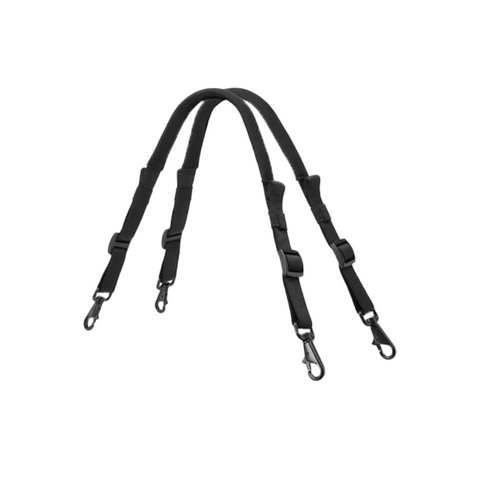If you have had the flu recently, you know it is miserable – headaches, coughing, sneezing, nausea and a high fever. Although the symptoms for a dog are slightly different, did you know your dog can get what is known as “canine influenza virus” or “dog flu”? It can be equally as debilitating for dogs!
What is Canine Flu?
Canine flu was first identified at a Florida racetrack in 2003, but the main strain identified now was brought to the United States by a single dog from Korea in 2015 (via Chicago). The two strains that are prominent are H3N2 (originally from horses) and H3N2 [originally from birds). In just a year the virus has spread to 26 states and 820 dogs. According to the Center for Disease Control, dog flu can be spread “by direct contact with aerosolized respiratory secretions (coughing and sneezing) from infected dogs, by uninfected dogs coming into contact with contaminated objects, and by moving contaminated objects or materials between infected and uninfected dogs.”
Noticing the Signs of Canine Flu
Unfortunately, American dogs have not built up immunity toward the virus. You may notice your dog coughing, losing his appetite, sleeping more, or sneezing. Chances are he will recover on his own. Extra care should be shown towards puppies and senior dogs that can develop high fevers, breathing difficulties and ultimately pneumonia. Less than 10% of sickened dogs die, and H3N2 seems to spread more rapidly than H3N8, and stay contagious for longer periods. H3N2 canine influenza has also infected some cats as well as dogs
Vaccinating Your Dog
Should you vaccinate your dog? That is a question you should ask your veterinarian. Testing to confirm canine influenza virus infection in dogs is available. Initially your vet may prescribe medications to make your dog more comfortable or antibiotics if the disease progresses in severity.
Is there an effective vaccine? The U.S. Department of Agriculture [USDA] and the Animal and Plant Health Inspection Service [APHIS] released a vaccination in 2009. It is usually administered twice, with a two-week break in between and must then be repeated annually. Your veterinarian may suggest the vaccine if you frequently visit dog parks or travel extensively and kennel your dog.
Is there an outbreak in your neighborhood? You might want to be careful about exposing your dog to other dogs because an infected dog can be contagious for two weeks.
Can your dog give you the canine flu? You are safe there .. there are no known cases of a dog transmitting the flu to a human. Just give him extra love and cuddles and he should be back to form in no time.



